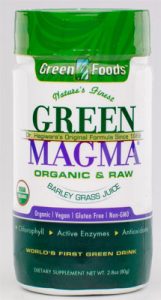Detox – or, the actual longer form of the word, detoxification – is a term that’s very familiar to people in today’s modern world. Fundamentally, many of us understand what it means – undergoing a change in what we put into our body in order to clear the body of harmful toxins. Yet, when it comes down to it, detoxification involves more than merely making dietary changes. Typically, a detox involves abstaining from specific harmful things so body processes can be optimised but, while some of these changes are temporary (a cleansing diet, for instance), others ought to be permanent.
Toxins
First things first, though; let’s be clear we know what we mean when we talk about toxins. In essence, toxins are substances that, to humans, are toxic (i.e. poisonous) and so can cause harm to the body. Typically, specific chemicals, metals, pesticides, pollutants and ingredients in artificial foods that, when consumed, harm the body are what are commonly considered as toxins. And yet, so familiar a term – like detox – is toxin that it covers a wide variety of substances; everything from artificially created chemicals (as you might expect) to naturally occurring substances too. For instance, the naturally occurring arsenic is, of course, a very harmful, toxic substance.
Unfortunately, we come into contact with a good number of these toxins in practically every form of our environment and at practically every moment of the day. How so? Well, they’re there to be encountered in not just the food we eat but also the water we drink and the air we breathe – and this ensures that many of the health issues people suffer from are directly due to the toxins they’ve either allowed to or haven’t been able to prevent consuming and taking root in their body.
On a brighter note, though, owing to its own natural detoxification processes, we can rely on our body to counteract the harmful effects of many toxins and pollutants – for the most part, the toxins that we can’t avoid consuming on a daily basis. However, this is where a programme of detox, of regular cleansing, can really help out your body in successfully performing its natural detoxification processes.
Natural detoxification
Of course, with such an emphasis on us ‘detoxing’ as there is nowadays, it’s all too easy to overlook the fact that our bodies do, indeed, detox themselves naturally – and that any detoxification activities we perform ourselves are effective precisely because they help this natural detox process. So, what’s involved in natural detoxification? Well, detoxification is fundamentally enabled by the excretory system (via defecation and urination) and that means the involvement of several organs; the liver, kidneys, large intestine, lungs and even the skin.
The latter body part may sound like a surprising participant in excretion but, when you think about it, of course the skin is part of the excretory system (and, thus, detoxification), owing to the fact that sweat is excreted through the skin and, while sweating primarily takes place to regulate body temperature, the release of toxins also takes place through sweating.
And what of the rest of the excretory system? The liver is relied on for filtering and excreting waste, hormones and foreign chemicals, the large intestine converts food waste into human waste (stool) to be defecated, the kidneys remove waste from the blood to be excreted through urine and the lungs remove carbon dioxide from the body.
Aiding the body’s detoxification
So, what ought you do in your own ‘detoxing’ efforts to supplement and aid the body’s natural detoxification? First off, it’s all about selecting the kinds of food that’ll best aid these processes. The sort of ‘detox friendly’ foods we’re talking here then are inevitably those that are light in – or entirely free of – toxins; the likes of organic vegetables and fruits, while the likes of fast food and processed foods are at the complete other end of the spectrum.
So, try to cut those out and replace them with healthy, organically-derived foods – and those free of GMO products and pesticide-contamination, if at all possible. Additionally, there are specific foods that will help promote and actively aid natural detoxification, including broccoli sprouts, garlic, lemon, mung beans and raw vegetables.
Alternatively, if you’re restricted in dietary changes you can realistically make (perhaps due to food intolerances), then you might well want to try supplementation. You won’t be surprised to learn that we only recommend naturally-derived supplements, so those that we highly recommend to aid detoxification include the following:
Green Magma (Barley Grass Powder) – a certified organic extract of young Green Barley Juice, this supplement may aid detoxification, improve digestion and boost energy.
ORËÁ – a whole body-focused, natural toxin remover, this supplement can aid in the removal of environmental toxins like lead, mercury, arsenic, biotoxins and solvents.

